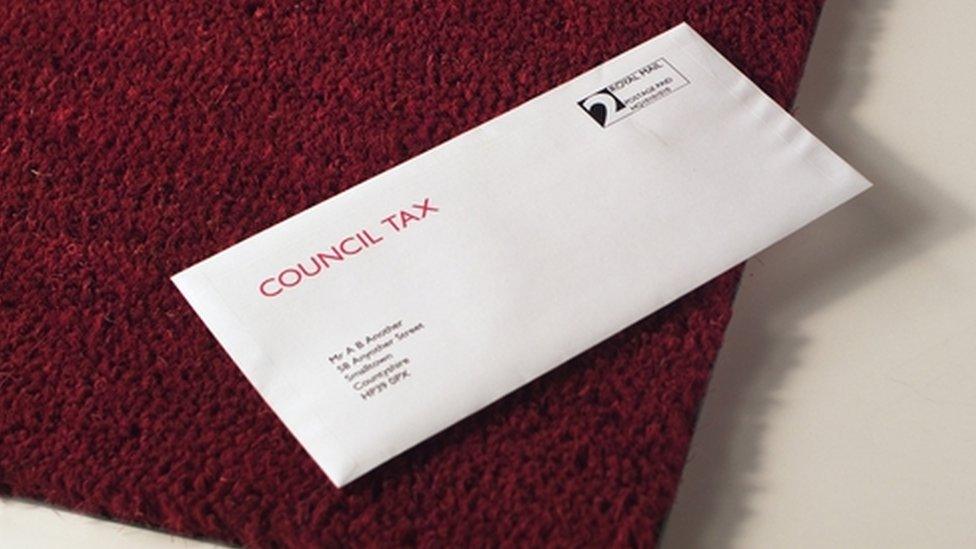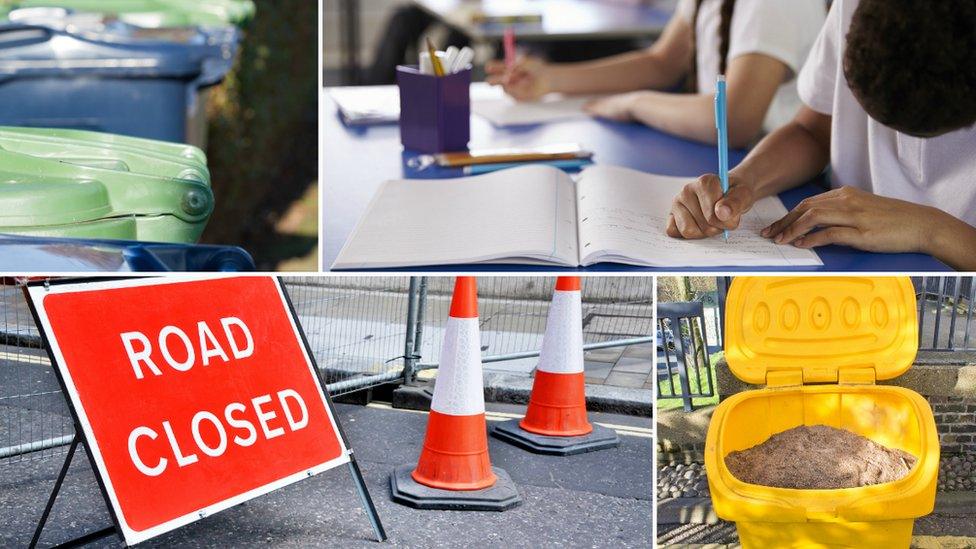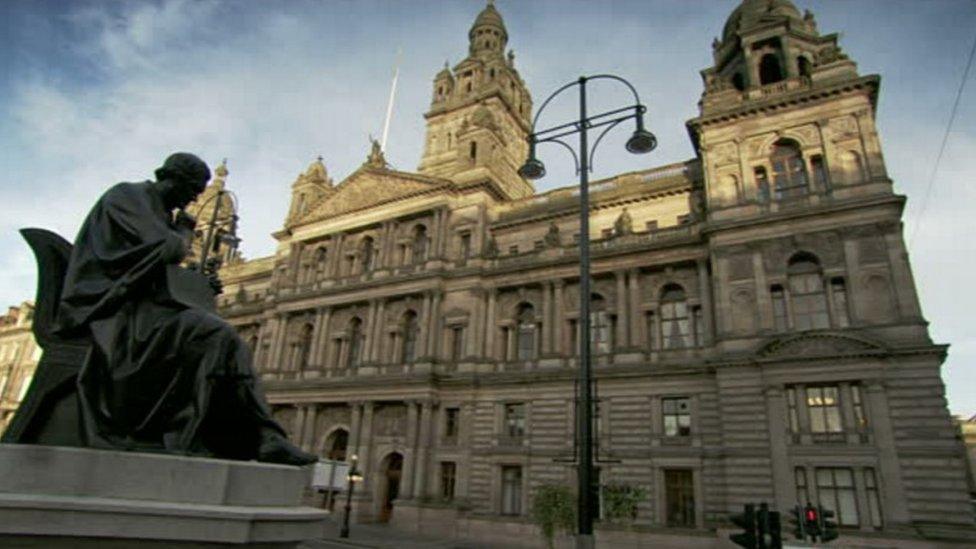Scots councillors owe more than £140,000 in local tax debts
- Published

The total amount owed by the 32 councillors could pay the salaries of four teachers
More than 30 councillors across Scotland have historic council tax debts, according to BBC Scotland research.
Some of the local representatives owe their councils several thousand pounds, and the debts have built up to a total of more than £140,000.
The authorities concerned say they are aware of the debts, and the councillors are paying them off.
The total sum of the debts is enough to pay the salaries of four teachers.
BBC Scotland submitted freedom of information requests to all 32 of Scotland's local authorities, asking if any serving councillors had council tax arrears.
A total of 32 councillors in 13 council areas had debts - in six council areas, more than one councillor had debts.
The biggest headline total was in Glasgow where eight councillors owed almost £52,000 between them, with most of that amount was built up in previous years
One councillor in the Western Isles had arrears of £14,446 for two properties
In both North Lanarkshire and Aberdeenshire four councillors owe more than £20,000 between them - again most of that total was built up in previous years
Renfrewshire Council said four councillors owed a total of £14,101 - the majority of it from previous years
Three Edinburgh councillors owe a total of £5,594, all from previous years
Two Highland councillors owe £2,970 between them
One councillor in East Renfrewshire owes £4,355
One councillor in South Lanarkshire owes £3,237, from previous years
One councillor in West Dunbartonshire owes £2,497, from previous years
One councillor in South Ayrshire owes £1,149
One councillor in West Lothian owes £877, from previous years
The remaining councils did not have debts outstanding.

Council tax funds pay for a range of local services
The councils did not provide any information about the individual councillors or how they had built up the debts - the debts may have been built up before the person concerned was elected.
It is impossible to say whether the individuals concerned built up the debts as a result of personal financial difficulties, actively avoided paying council tax in the past or accidentally missed payments.
In the early days of the council tax, some councils had significant non-payment rates, possibly following campaigns to refuse to pay its controversial predecessor, the so-called "poll tax".
The figures for North Lanarkshire suggest four councillors owe an average of £5,000 each.
The council said it had pursued the individuals concerned and agreed plans to help them clear the debt over time.
'Public confidence'
The code of conduct for councillors makes specific reference to council tax arrears - although arrears do not prevent someone from standing for election or continuing as a councillor.
It says: "The law makes specific provision that if a councillor is in two months' arrears with payment of council tax that councillor may not participate in certain decisions concerning council tax issues, in order to preserve public confidence that councillors are taking decisions in the general public interest."
It adds: "Whilst you are a member of the community, you are also a representative of that community and of the council to which you are elected. As there is potential for public perception of abuse of position and poor leadership, you must seek to avoid being in debt to the Council."

The largest debts were outstanding at Glasgow City Council, although all eight councillors have agreed payment plans
All eight of the Glasgow councillors who have arrears have agreed payment plans.
A spokesman for the council said: "Council tax supports a wide range of frontline services. It is important that everyone that can pay does pay."
Brian Cook, head of revenue and efficient government at North Lanarkshire Council, said: "While we would never discuss individual cases, councillors in arrears are treated no differently to any other resident. We actively pursue council tax debt in a variety of ways which can eventually lead to court action but we always attempt to put a suitable plan in place for those who are in arrears. That is what has happened in terms of these councillors."
Renfrewshire Council said the vast majority of the money owed by councillors is likely to be recovered soon.
It said arrangements had been put in place which would reduce the total to less than £1,000 by next month.
Aberdeenshire Council confirmed that all outstanding amounts are being actively pursued as part of normal procedure. It also said any councillor in arrears at the time of important votes on council budgets would be prohibited from taking part.
'Appropriate steps'
Edinburgh Council added: "Council tax collection forms a significant part of our budget and we always take appropriate steps to collect outstanding sums. This is only fair to the majority of people who do pay their council tax and other council charges that allow us to provide vital services for all of our residents.
"Council tax revenue helps to provide services to people in all our communities, which is why we take non-payment extremely seriously."
A spokesman for Western Isles Council said: "The Comhairle nan Eilean Siar's normal debt recovery procedures are being followed. While we would never discuss individual cases, councillors in arrears are treated no differently to any other resident."
In general, councils advise anyone who finds it hard to pay their council tax to speak to them as soon as they can. They may be able to ensure people receive all the benefits or discounts they are entitled to or work out payment schemes.
Councils across Scotland collected 95.8% of the council tax they were due last year on average.
The lowest total of 93.4% was in Dundee.
Some councils have effectively written off many debts from several years ago, believing the amount they will recover is not worth the cost and effort involved. But current debts are pursued.